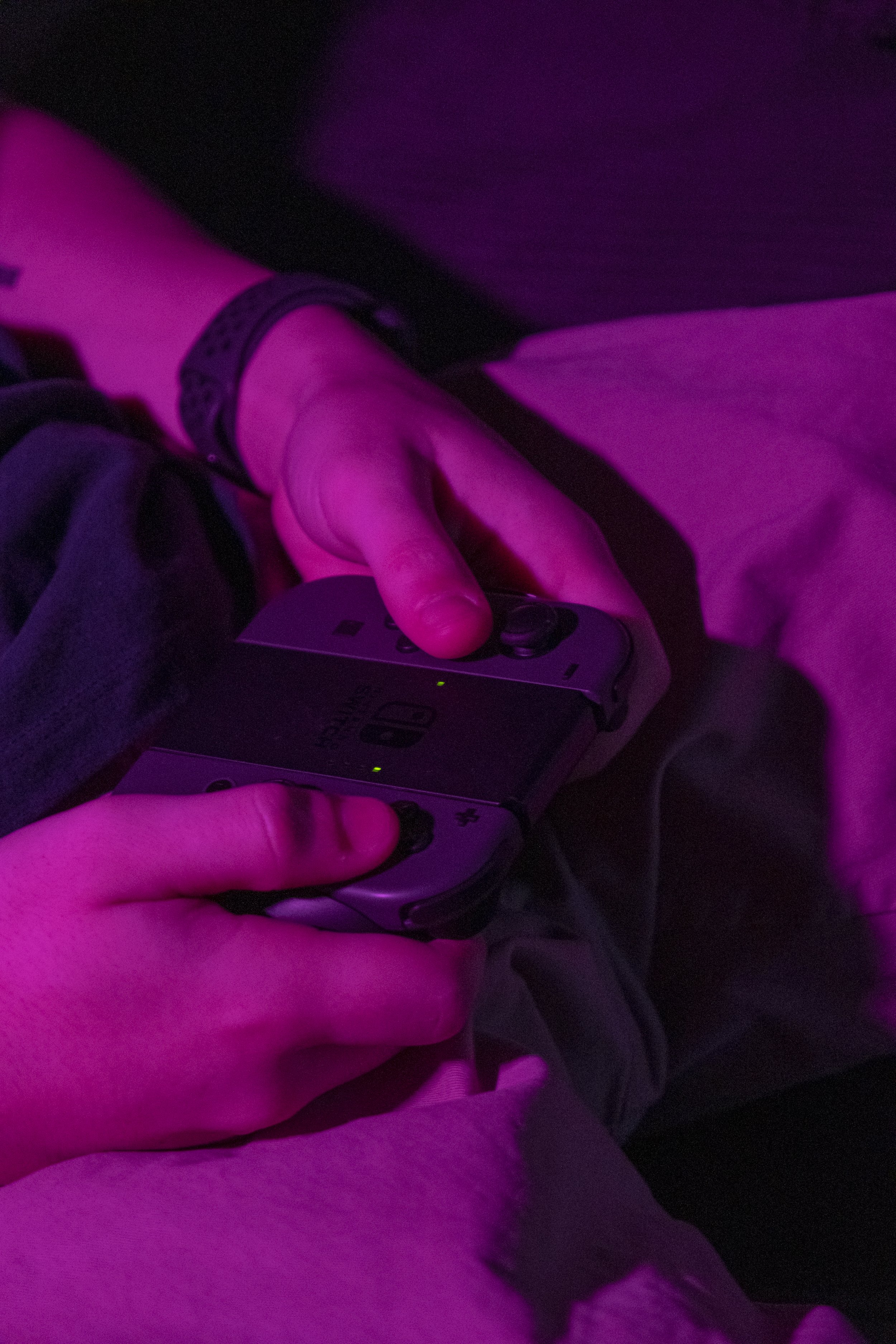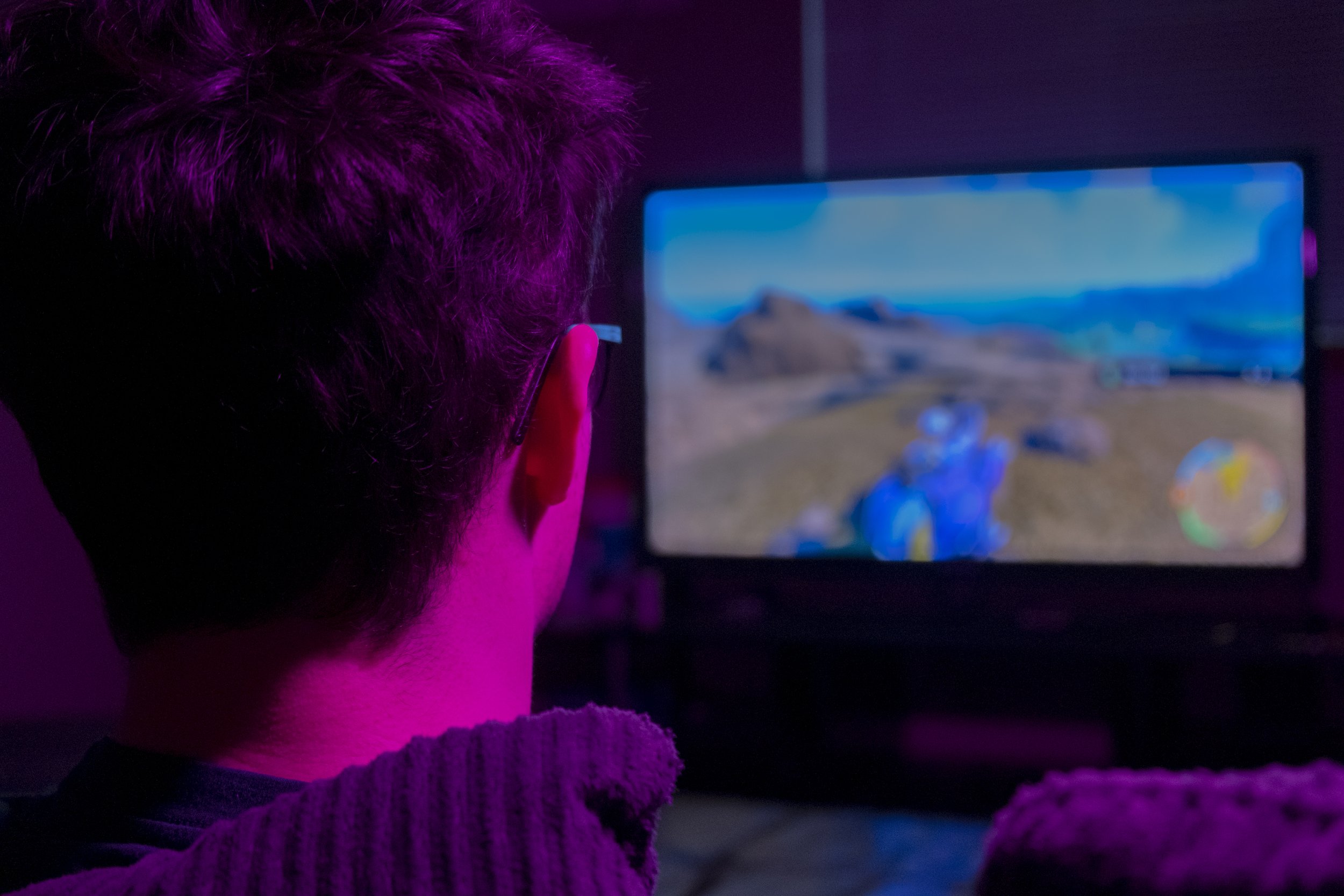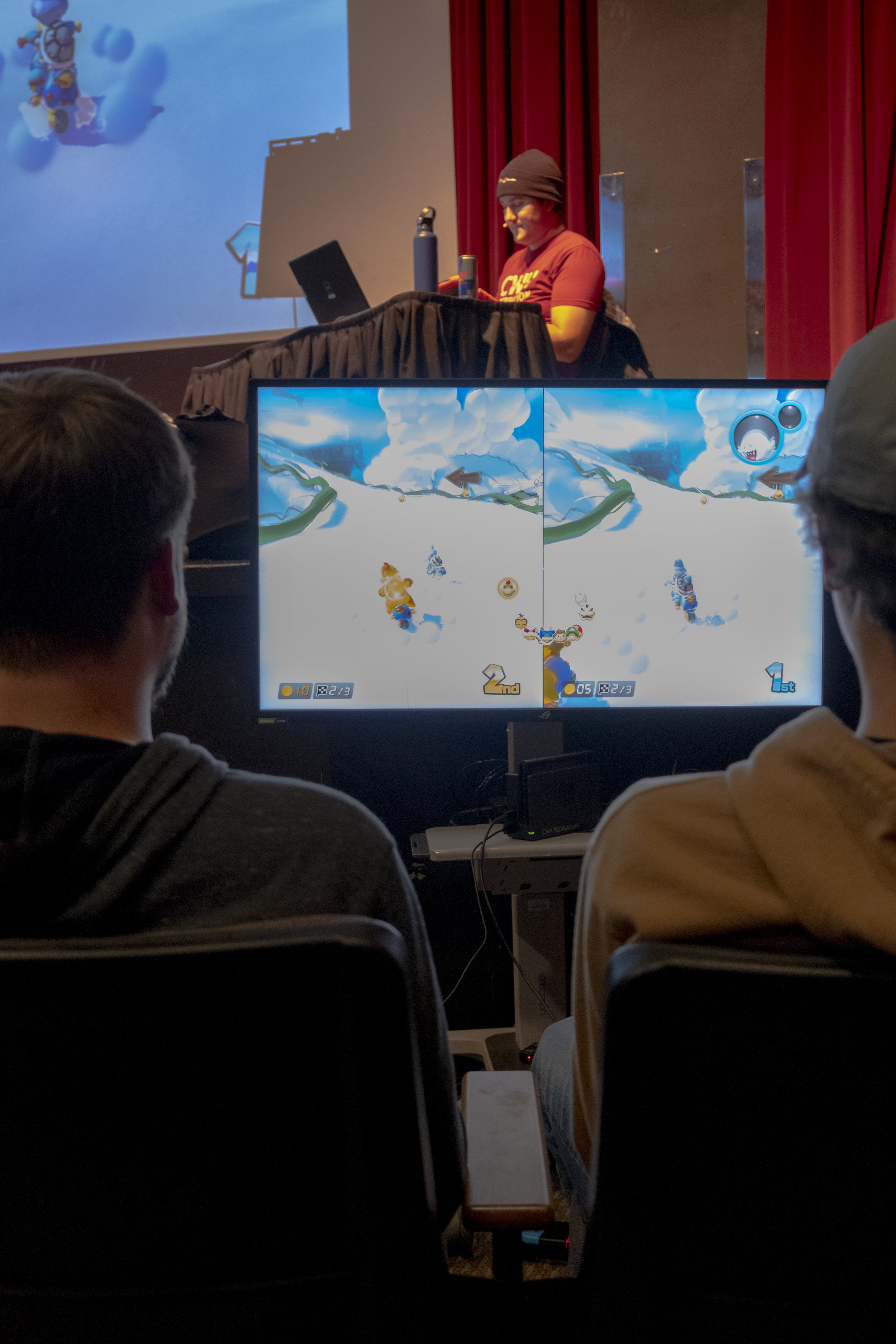The Gamer's Psyche
Story by Sam Harris | Design by Rody Farr | Photos by Jokob Burnham
Ever since the tragic Columbine High School Massacre of 1999, video games have been the subject of numerous controversies. Without a conclusive motive for the shooting, concerned parents pointed fingers toward the violent video games the perpetrators were said to have been playing.
Nearly a quarter of a century later, the motives behind the shooting remain inconclusive, however researchers now know that video games alone are not to blame.
“The evidence is pretty mixed,” says Joshua Buchanan, a professor of psychology here at CWU teaching a course on the psychology of video games. “I would say for every article that's come out suggesting that there is a connection [between violence and video games], there's also been an article coming out kind of as a rebuttal to that statement.”
Buchanan explains that in the research process, researchers cannot ethically assign participants to be violent or nonviolent, so research on violent behavior is rather inconclusive. The research on aggressive,which differs from violent, behavior however can be more easily measured.
“There's definitely evidence suggesting from other fields of psychology [such as] developmental psychology, that when you watch people be aggressive, you're more likely to be aggressive as a result,” says Buchannan.
Buchanan points out that “we can look at ways of being aggressive, and often that's indirect aggression.” More ethical research concerns would focus on if gamers would act aggressively, particularly when transgressed against, if given the opportunity.
Violent behavior is not something that can be ethically tested, hence why there is so little research on it. To put it grimly, humans can only be hurt through violence so many times. Though violence can be an act of aggression, people can also transgress in nonviolent ways as well. Even so, the research methods to test this are rather limited.
“A lot of the research studies that find the link [between aggression and gaming] only gives people the opportunity to be aggressive. They don't give people the opportunity to kind of be proactive or social to other people. Long story short, it’s complicated and we don't quite know.”
According to the American Psychological Association (APA), attributing violence solely to violent video games draws attention away from other factors that can influence violent behavior.
Since 1999, video games have seen a massive rise in popularity, with an industry projected to be worth $365 billion in 2023 according to a Statista market forecast. The gaming industry’s influence touches nearly every corner of the world with a global population of over 3 billion gamers. More and more people have now been born and raised with video games. The APA finds that more than 90% of children in the United States play some kind of video game. With that, in 2023, more and more gamers are now raising children of their own.
“Video games were considered to be this toy that children played, and it was purely a kind of escapism. All of the kids who grew up playing video games are now adults in positions of power and influence in society. It's become more normalized to be someone who plays video games and be familiar with video games. It doesn't have the same stigma attached to it than it did 10, 20 years ago,” says Buchanan.
Since gaming is such a new concept in the grand scheme of history, there has been a variety of stigmas attached to gamers.
One such stigma is that gamers waste their time rotting away in front of a screen for hours at a time whilst playing video games. Much of this stigma is based on speculation from concerned parents watching their children playing video games.
Gaming, as it turns out, is actually a far more involved activity than staring at a TV. Video games involve coordination, multitasking, strategy, creativity and communication. How long a person should spend playing video games depends from person to person; the same could be asked of how long people should read books, or how long people should spend knitting a sweater. To put it simply, time enjoyed is not wasted time.
As anyone with children in 2023 may understand, kids seem to squander their time on screens more than anyone. While this particularly concerns content like Cocomelon and those brightly colored “oddly satisfying” videos, this same phenomenon can apply to children playing games.
Buchanan states that “when it comes to kids playing video games, having a parent [supervising] and engaging with the child while they’re playing can be especially helpful.”
Buchanan goes on to explain how children’s programming like Dora the Explorer effectively do just that. As part of the show, Dora will literally ask the viewer a question, and then pause and wait for a response.
“That's one way the show gets the children involved, and makes it an active thing rather than a passive thing, rather than the child just sitting on the couch and staring at the TV for 30 minutes to an hour,” says Buchanan.
Likewise, a parent supervising and engaging with a child while they play can be very beneficial in helping them solve problems and understand what’s going on in-game.
What are the upsides to video games?
According to Buchanan, video games can be great for developing very specific cognitive skills such as multitasking, information processing and memory. Video games can also be a great tool for socialization.
For some gamers, such as Ezekiel Borms, this community aspect is what makes gaming so fun. “To be honest, [gaming is] usually what I do to cooperate with people or connect with them. I just have fun, see what they like, [and they can] see what I like.” Borms said after winning the 2023 CWU Winter quarter Mario Kart 8 Deluxe tournament.
For others, gaming can be a rather hostile environment. Though chat features can be quite helpful for in-game team communication, they tend to lack in moderation. Many gamers, particularly people of color and women, face online harassment as a result of such little moderation.
“Interacting with people through video games can be a great way for those individuals to connect as long as it's in a safe place which, unfortunately, communicating with other people in the context of video games is not always a safe space, especially if you are a certain type of individual,” Buchanan warns, “but it has the capacity for something like that.”
Recently, the World Health Organization categorized internet gaming disorder into their 11th edition of the International Classification of Diseases (ICD-11). Many video games in the modern era are designed with how the brain works in mind. Most games are of course designed with goals and rewards for completing those goals, but those goals are finite.
For games with a single player, linear story, there are only so many goals to complete before the player completes them all. Internet gaming disorder does not concern these types of games, however they do concern massively multiplayer online games in which there is no definite end.
These “constantly on” games are highly addicting, and they are intentionally designed to be. Downloadable content, in-game cosmetic items, upgrades and even the ability to keep playing are oftentimes locked behind a paywall. This in turn exploits the player’s human desire to complete goals for profit.
That’s not to say that all video games are exploitative, or that all video games are highly addictive or even that all video games have a toxic player base. As stated previously, time enjoyed is not wasted time, so keep playing, but don’t forget to touch some grass sometimes.







